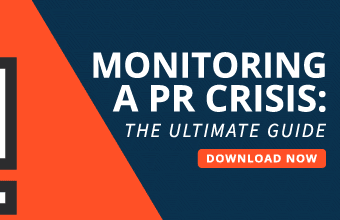In journalism, any crisis is an opportunity—an opportunity to tell a story, find interesting facts, discover new heroes and finally reach wider audiences. Communication and PR should borrow the same tactics.
While many businesses find themselves in an economic crisis amid COVID-19 epidemic, it is crucial to be proactive and act as soon as possible. Keeping your head down will not help in maintaining and developing your business image. Instead of cutting work hours of PR and communications specialists in times of crises, the focus should be on developing more effective crisis communication strategy. Here are 5 reasons why:
1. Now more than ever, your clients need to know what they should do
Many businesses are now on the verge of bankruptcy. Of course, the lion’s share of bad luck landed on the businesses related to tourism. Airlines were hit the most, and tourist agencies, entertainment centers and small businesses that provided non-essential goods and services are temporarily closed. While many airlines spend their resources only on informing about cancelled flights and exchanging tickets, others chose different tactics: they offer new, safer destinations for future trips.
The virus will go away someday, and people need to have hopes and plans for the future. Do not be afraid to promote your business in times of health crisis. Total cutdown from regular blogs, posts and even advertisements make people more anxious and doesn’t help your business grow either. For instance, if you have a gym, it is essential to inform your clients about your plan B, during- and after-crisis strategies. What will happen to their memberships? Are there any online classes to follow? If there is anything certain in these difficult times, it is that many jobs do not require immediate physical presence.
2. Acts of kindness provoke interest
One recent example of adapted marketing tactics is Pornhub, which offered free premium subscription to the European countries hardest hit by coronavirus: Italy, France and Spain. The news was posted and shared on different media, and traffic of the adult website increased not only in the countries with free premium membership, but all over the world almost by 11 percent.
Open access increased curiosity also towards arts and education websites. People who would not normally be interested in visiting museums showed interest in both visiting digital museums and taking online courses. Food businesses offer free delivery, taxis offer free rides for medical personnel etc. Use forced isolation and social distancing for the people’s—and your business’—benefit.
3. Crisis creates opportunity
The crisis will pass, and media will return to their usual agenda—but the businesses that filled the information void will have an advantage in tomorrow’s business and information sphere. Journalists are loyal to the speakers and press officers who were available for comments and provided interesting content in times of crisis. Due to the coronavirus outbreak, any news related to the virus will gain immediate interest. If you announce a new online service that minimizes person-to-person contact, or make existing services temporarily free of charge for the most affected groups, your business’s name will be mentioned in news articles—but more importantly, for journalists and clients, your brand name will be associated with availability and customer care.
Do research and analyses of how your and other business were affected due to quarantine, how custumer behavior has changed, and there is a bigger chance than ever that your material will be published in major media outlets.
4. In times of crisis, expert opinions matter
People seek explanations, advice, and new strategies in times of emergency. They want to know what to do and how to do it with minimal loses. That is why your expert advice and recommendations in a specific field will be appreciated more than ever. For instance, CRM developers may recommend the tools and means for distance working; human resources may advise how to organize trainings to improve employees’ qualifications; credit specialists may suggest how to survive and keep your credit score high during uncertain financial times, etc.
5. Share your own experience
Every day, we receive quotes and questions about how our company’s strategy was changed and how businesses were affected amid the virus outbreak. Share your stories about how distance working was organized, what changes were made and other plans. However, it is equally important to share the challenges your company is facing. This way people feel closer to the company or brand. Your communication strategy should be built around the principle of making people’s lives as easy and comfortable as possible. The best approach is to position your business as proactive and open for communication.
Remember, virus outbreaks and emergencies will pass. Think about how can you use the situation for your and your clients’ benefit. Life after quarantine will come, and people will make plans. The challenge is to include your business in those plans.








